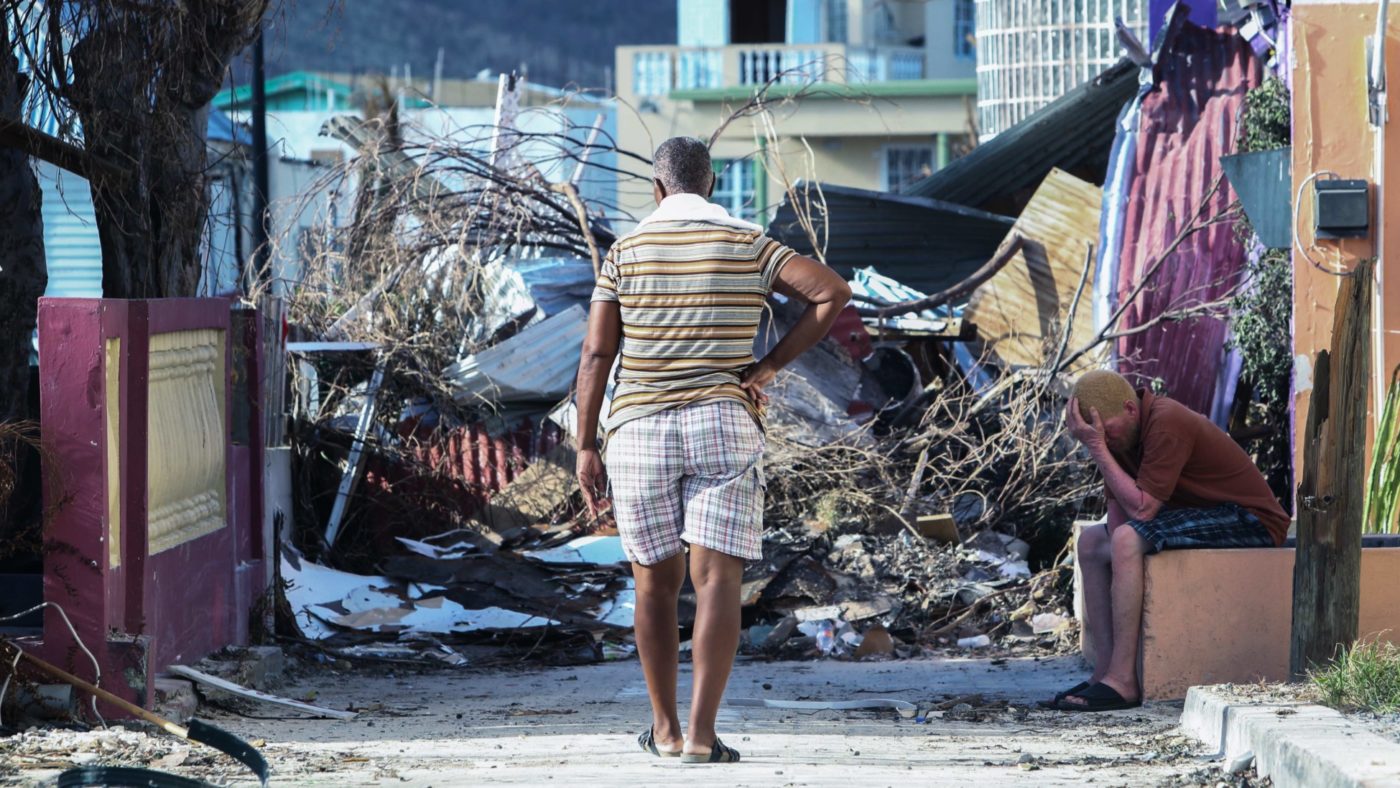As hurricanes have hit the US, a debate has been raging over the role of markets and governments in disaster prevention and post-disaster relief.
Only this week, the Nobel Prize-winning economist Joseph Stiglitz pointed out what he described as an “obvious lesson”, which was that “markets alone won’t protect you” from natural disasters. This, he explains, is because markets are subject to market failure, which means that “collective action becomes imperative”.
According to Stiglitz, markets fail in such scenarios because individuals have “no incentive to take adequate precautions” on their own, which then means that “effective government investments” and “strong regulations” are necessary.
This would be an interesting point, if it were not actually a straw man argument. Free market economists (whom Stiglitz, unsurprisingly calls neoliberals), have not made the claim that markets alone could protect society from natural disasters. This markets-alone-can-protect-you-
What so-called “neoliberals” have argued is that markets form an essential—though not necessarily the only, or a sufficient— component of disaster prevention, and more critically, in post-disaster recovery. While we should welcome all sources of aid, the last thing we should do is to impair the contributions of the market in this respect.
The necessity of the market mechanism is most clearly seen in post-disaster situations, where essential goods are in short supply. In such situations, prices of essential goods naturally rise to reflect their relative scarcity, and higher prices create an incentive for entrepreneurs to enter the market. The result is that higher prices, through price gouging, help resources get to the people who need them most.
Such behaviour has been severely criticised across the political spectrum. But let’s not forget that the price gouging is not defended by its supporters as the sole and sufficient means to alleviate shortages. It isn’t a panacea, but it does offer one option for those in need. And while governments should engage in relief initiatives, that is not a reason to block the market process, which is precisely what has occurred through widespread anti-gouging laws.
There are, of course, be those who would come to the aid of others out of pure altruism after disasters. Yet, altruism is not inexhaustible, and the last thing we should do is prevent those who wish to earn money while also helping others from doing so.
Unfortunately, that is precisely what happened in the aftermath of Hurricane Katrina, when the praiseworthy efforts of Walmart and other private-sector retailers in bringing essential goods to the scene were stymied by the bureaucracy of the Federal Emergency Management Agency (FEMA).
Lest I be accused of a “market fetish” that is emblematic of “the neoliberal gospel”, I should clarify that there’s more to be said in defence of markets in addition to just “price-gouging is great”.
In the area of disaster prevention, for example, Stiglitz has conveniently neglected to mention the unintended consequences of government regulations on construction patterns in coastal areas. By underpricing insurance, the NFIP has created a moral hazard by improperly incentivising overdevelopment in flood prone areas.
This is particularly relevant in the case of Florida, which has just been subject to Hurricane Irma’s wrath. Florida is no stranger to hurricanes, having been hit multiple times in its history. Yet, despite this clear threat, the coastal population has grown at a rapid rate, with a denser population now than ever before, exposing more people and property to natural destruction.
The federal agency tasked with disaster management, FEMA, is itself prone to inefficiencies, and has often impeded more effective relief efforts on a local-state level. Its well-documented limitations should provide caution to those who would embrace Stiglitz’s call for “strong regulations”. The limitations of such centralised disaster-relief bodies is no surprise, as pointed out by the economist Peter Leeson; such bodies lack knowledge of local circumstances and are relatively weak in adapting to on-the-ground conditions.
Of course, this is not to say that markets work perfectly, according to textbook idealisations. Since markets are human constructions, and humans are imperfect, markets can often fall short.
Yet, in the emerging field of mainline economics, the case for the market doesn’t rest on an idea of perfection. While markets may fall short, what is needed is a comparative analysis of whether they remain superior relative to political institutions, especially in dealing with problems of incentive and knowledge. Imperfect markets may still be preferred over the imperfections prevalent in governmental bodies.
So while markets are not perfect, this field of mainline economics has produced a large body of research demonstrating how local communities and voluntary associations are more resilient than commonly assumed, in coping with collective action problems in post-disaster situations.
Important contributions include Laura Grube’s Community Revival in the Wake of Disaster: Lessons in Local Entrepreneurship, which draws from cases of recovery efforts after Hurricanes Katrina and Sandy, examines how local entrepreneurship promote community recovery. The combined research efforts of the Mercatus Center at George Mason University investing post-Katrina recovery have culminated in an oral-history account How We Came Back, which shows the resilience of self-governing communities.
While Stiglitz is not wrong to claim that markets alone cannot protect you from disasters, his claims may ultimately be beside the point. His argument can be easily turned on its head: government alone cannot protect you from disasters. Free, private, self-governing communities can, and often have devised mechanisms to come together, provide collective goods, and recover from even the deadliest disasters.


